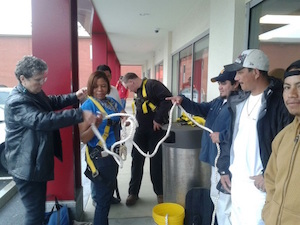With the media’s attention turned to Brazil for the 2016 summer olympic games, it’s an excellent time to remember that many people of Brazillian heritage live in the United states, including both recent immigrants and citizens whose families have been in the country for many generations.
Brazillian immigrants first started arriving in the U.S. in 1820, and from 1960 onward there’s been a big surge in immigration. According to the U.S. Census Bureau, in 2012 there were 371,529 Brazillian Americans, who trace their ancestry, by one or both parents, back to Brazillian ancestors. Other sources claim there are between 800,000 and 1.1 million Brazillians living in the U.S.
Brazillians brought their rich cultural heritage to the United States, including the Portuguese language, their cuisine and expressive arts, and many religions, ranging from Roman Catholicism to several animist and spiritualist faiths. They value education, and according to the 2000 U.S. Census, about 34.5% of Brazillians living in the U.S. had completed four or more years of college, which compares quite favorably with 24.4% for the general U.S. population.
New York City, the metropolitan Boston area, and Miami are big centers for Brazillian immigration, and sport the largest Brazillian American communities. Framingham has the largest Brazillian population of any Massachusetts city, followed by Somerville. Other cities with large Brazillian populations include Los Angeles, Atlanta, and Chicago.
There’s a long list of well-known Brazillians and Brazillian Americans who have contributed to U.S. society, including screen legend Carmen Miranda, super model Gisele Bundchen (married to Super Bowl-winning New England Patriots quarterback Tom Brady) and Lin Chao, the biologist and geneticist. People of Brazillian descent have integrated into every walk of life. Many business owners are of Brazillian heritage, and many new Brazillian immigrants start businesses in the United States.
The olympic games is a great time to celebrate the peoples and nations of the world, and to pay particular attention to the people of the host country. Brazillians have contributed to the fabric of American life, for the better part of 200 years, enriching the nation.



